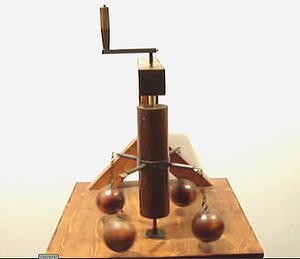Remundo wrote:for the one who makes the garden a hobby, a moment of social life, why not the animals or pedal oneself ...
But when it becomes serious, the fuel is made to speak, and the mechanical force that flows from it.
1) Thank you for having detached the part on the "garden in a deckchair with a good book in the right hand and a glass of beer in the left hand"!
2) I think the debate on agriculture should be dismissed. It would take books, and we would not be addicted!
In any case, as I said above, do not jump to hasty conclusions from the jadrinage for agriculture and vice versa.
The "dimension is not the same at all:
On the one hand, about 2% of people feed the other 98; Exports of surpluses more than offset imports of what is not produced ...
The "dimension" is about a hundred ha; the quantities of energy are evaluated in hundreds of thousands of kWh!
[a man who would pedal without stopping, for a year, at a good pace, it is an order of magnitude of ... 2 500 kWh]
My square treated in BRF, it is 40 wheelbarrows, on approximately 40 m². At this rate, a "100 ha farm" would be ... a million wheelbarrows.
So we can not put both in the same bag.
3) Even in front of jadrin, the goal should always be recited.
Few people feed on their gardens. At most it brings more or less of our food!
For many it is caring.
For some, it's having "the biggest" - I'm talking about tomatoes or squash.
Depending on that, obviously, the strategy, the priorities, "the emphasis on ..." will not be the same at all!
In my case, it is:
a) high quality production; I aim for "more than organic" (therefore limit the use of products (pesticides, fertilizers) even if they are labeled "organic"; if it is to have a treated salad, I prefer not to tire myself and buy it !
b) I aim for an "appreciable" part of our consumption: autonomy on certain products (bulbs, aromatics); "all season" for others (raspberries, strawberries, salads, radishes, tomatoes ...)
I am preparing for my retirement, with a drop in income. The aim is to significantly reduce our vegetable purchases in the budget. Without spending as much (or more!), In inputs (seeds, plants, products, fertilizers ...). The objective would be "zero inputs" - if we mean by objective "tend towards".
(c) intellectual research; for now personal; it's about observing, reading, reshaping, trying and ... sharing (hence the other thread).
So I do things that are not always reasonable, "to see"!
d) without it being a chore (hence the "transat" - the book, so many universes that I did not take the time to read and the glass of beer - in Alsace, it is synonymous with friendship].
Without that, and a few other things that I have probably forgotten, that would not be understandable, eminently criticizable ...
Suddenly, the dialogue will be limited with the one whose objective is to have the biggest ... but also with the one who has seen a "square vegetable garden at Botanic" ... Without them being wrong!
Let's avoid the dialogue of the deaf - simply because we are not talking about the same thing, or because we are not pursuing the same goal.



